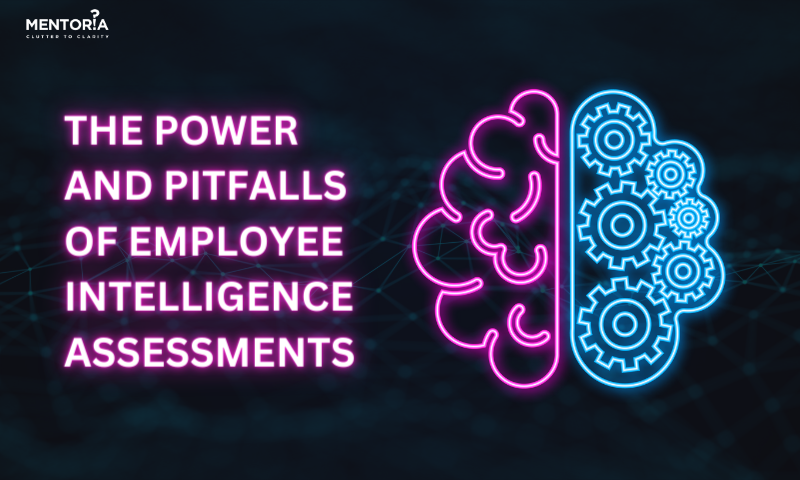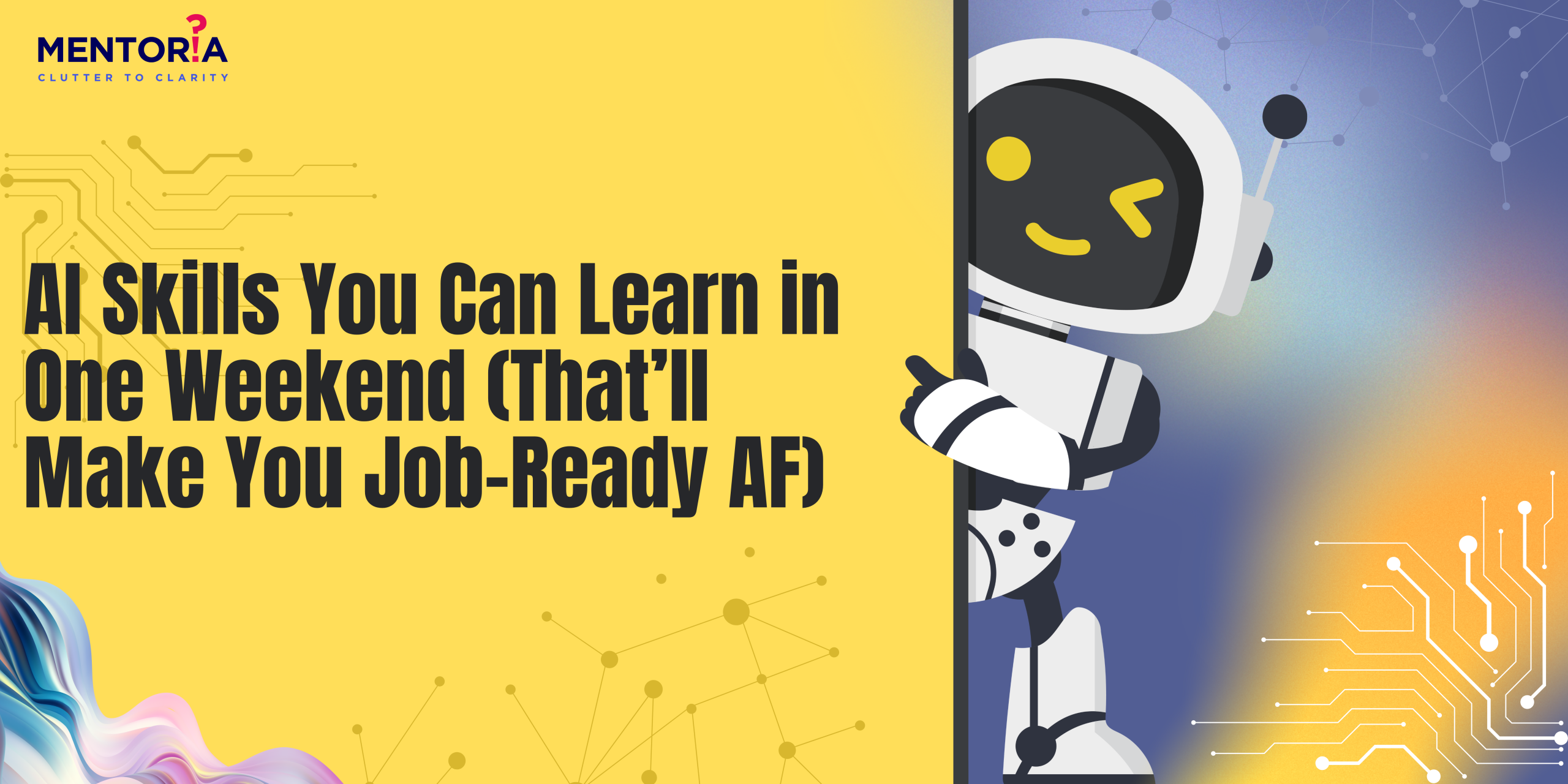The Power And Pitfalls Of Employee Intelligence Assessments

In a world where the quest for the perfect employee resembles a complex puzzle, enter the enigmatic realm of employee intelligence assessments—an alluring solution that promises to decipher the code of candidate potential. As companies strive to build teams that can crack challenges like cryptographers and strategize like chess grandmasters, these assessments have gained both proponents and sceptics. Behind the veneer of objectivity and predictive power lies a fascinating debate. So, prepare to unravel the layers of cognitive scrutiny, as we explore the pros and cons of these brain-bending evaluations.
Pros Of Employee Intelligence Assessments
Data-Driven Decision Making:
Employee intelligence assessments provide valuable data and insights that enable organisations to make informed decisions about hiring, training, and professional development. The power of data-driven decision-making cannot be overstated. By analysing the cognitive abilities of candidates or employees, organisations gain a deeper understanding of their potential fit within the company. These assessments provide a standardised and objective evaluation of cognitive skills, which allows employers to identify candidates who possess the right skill set and potential for growth. With this data at their disposal, employers can make confident decisions that align with their long-term business objectives and create a more efficient and productive workforce. The use of assessments for continuous development is growing. In the past, employee intelligence assessments were often used only for hiring decisions. However, employers are now increasingly using them for continuous development. This means that employees can take assessments throughout their careers to identify areas for improvement.
Identifying High-Potential Employees:
Intelligence assessments offer a window into the cognitive abilities and problem-solving skills of employees, helping organisations identify high-potential individuals within their existing workforce. A well-rounded employee with untapped talent can become a valuable asset and a future leader within the company. By recognising and nurturing these talents, organisations can build a robust leadership pipeline, ensuring a smooth transition of responsibilities and a sustainable future for the company.
Enhancing Team Dynamics:
Teams are the backbone of any organisation, and a harmonious team dynamic is crucial for success. Employee intelligence assessments not only provide insights into individual strengths but also help build well-rounded teams. By combining employees with diverse cognitive abilities, organisations create dynamic teams that can tackle challenges from different perspectives.
Research shows that teams with a balanced distribution of cognitive abilities perform 20% better on problem-solving tasks. A diverse team brings together a variety of ideas, approaches, and solutions, leading to better decision-making and improved outcomes. Intelligence assessments contribute to the creation of cohesive teams that support each other’s strengths and weaknesses, fostering a positive and collaborative work environment.
Reducing Turnover:
Matching the right candidates to job roles is essential for employee satisfaction and retention. Employee intelligence assessments can significantly impact employee turnover rates, ensuring that candidates are well-suited for their roles and align with the company’s culture and values.
A survey found that organisations that used intelligence assessments in their hiring process experienced a decrease in turnover rate. When employees feel that their skills are effectively utilised and their roles align with their cognitive strengths, job satisfaction and engagement increase, leading to reduced turnover. Reduced turnover not only saves recruitment and training costs but also enhances the overall stability and productivity of the organisation.
Tailored Learning And Development:
Every employee is unique, and their learning and development needs may vary. Intelligence assessments can guide personalised learning and development plans, tailoring training initiatives to address individual strengths and areas for improvement. The use of artificial intelligence (AI) is becoming increasingly common in employee intelligence assessments. AI can be used to automate tasks, such as scoring assessments and identifying patterns in data. This can free up human resources professionals to focus on other tasks, such as interpreting assessment results and making hiring decisions.
Organisations that adopted tailored learning programs based on intelligence assessment results reported an increase in employee performance. By focusing on areas that align with employees’ cognitive abilities, organisations can optimise their investment in professional development and ensure that employees receive relevant and meaningful training, leading to increased job satisfaction and a more skilled workforce.
Cons Of Employee Intelligence Assessments
Potential Bias:
One of the significant concerns with intelligence assessments is the potential introduction of bias. These assessments may inadvertently disadvantage certain groups due to cultural, social, or educational differences. A culturally biassed assessment may result in a skewed evaluation of a candidate’s cognitive abilities, leading to unfair outcomes in the hiring process.
To mitigate this, organisations must ensure that the intelligence assessments they use are culturally fair and sensitive. Diverse representation and input from experts in cross-cultural assessment can help create fair and inclusive intelligence assessments, ensuring equal opportunities for all candidates.
Limited Scope Of Assessment:
While intelligence assessments provide valuable insights into cognitive abilities, they may not encompass other essential skills that contribute to an employee’s success. Emotional intelligence, creativity, adaptability, and communication skills are critical aspects of an individual’s performance that intelligence assessments may not fully capture.
It is crucial for organisations to complement intelligence assessments with additional evaluations and interviews that assess a candidate’s overall fit within the organisation. A comprehensive evaluation ensures that candidates are assessed holistically, considering a wide range of skills and qualities that contribute to their potential success.
Stress And Anxiety:
The process of taking an intelligence assessment can induce stress and anxiety in candidates, potentially affecting their performance. The pressure to perform well on an assessment can create test anxiety, which may not accurately reflect a candidate’s cognitive abilities.
A study revealed that 23% of job candidates reported feeling anxious during intelligence assessments. This stress could impact their test results, potentially leading to an inaccurate assessment of their true capabilities. To mitigate this, organisations can create a supportive and encouraging test-taking environment and emphasise that assessments are just one component of the hiring process.
Cost And Resources:
Intelligence assessments require time, effort, and financial investment to administer and analyse results. The implementation of these assessments may be more challenging for smaller organisations with limited resources. This could be a significant barrier to adopting intelligence assessments as part of their hiring and talent development strategies.
Most companies cite cost as a major challenge in using intelligence assessments. To overcome this hurdle, organisations can explore more cost-effective assessment options or consider partnering with assessment providers to tailor solutions to their needs and budget.
Potential Overreliance On Assessments:
An overreliance on intelligence assessments can lead to overlooking candidates with valuable skills and potential. Focusing solely on cognitive abilities may neglect other essential qualities, such as emotional intelligence and creativity, which are equally vital for employee success and overall team dynamics.
Organisations should use intelligence assessments as part of a holistic hiring and talent development strategy rather than the sole determinant of employee selection. By considering a combination of cognitive abilities, skills, experience, and cultural fit, organisations can make well-rounded and informed decisions about talent acquisition and development.
Cracking The Code With Mentoria
Employee intelligence assessments can be a powerful tool for companies to gain valuable insights into their workforce. These assessments provide valuable data that can help employers make informed decisions about hiring, training, and talent development. By identifying employees’ strengths and areas for improvement, organisations can tailor their strategies to boost productivity and employee engagement.
At Mentoria, we understand that employee development goes beyond assessments. While intelligence assessments provide valuable data, our approach extends further. We offer personalised career counselling and training solutions that focus on developing employees’ unique strengths and potential. Our team of experienced career counsellors can guide employees on their career journeys, helping them set goals, acquire new skills, and navigate challenges effectively.









